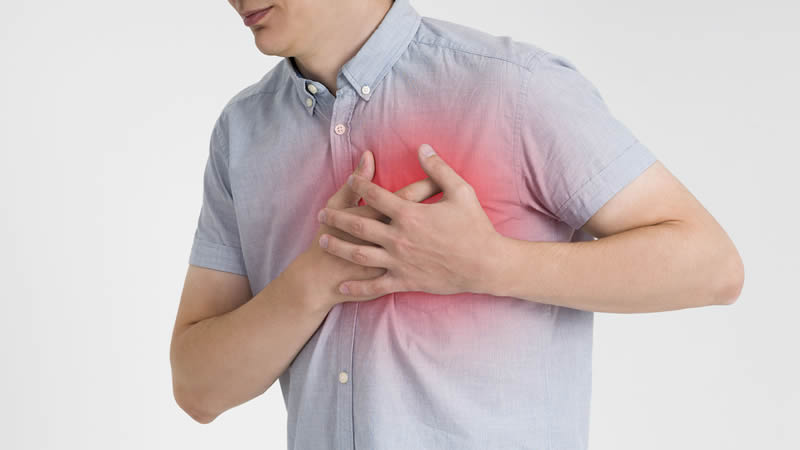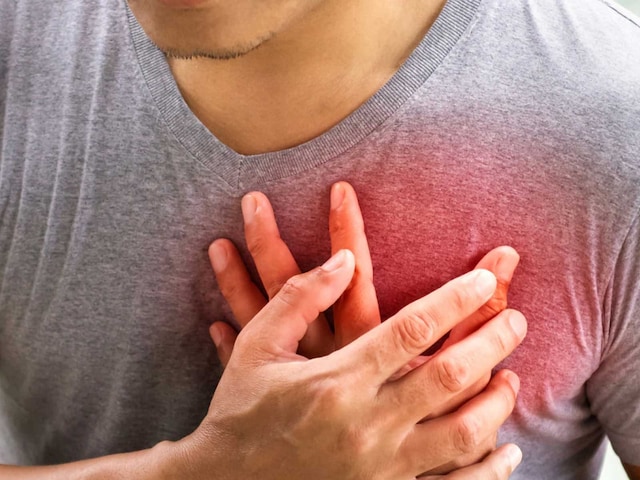Symptoms such as chest pain, shortness of breath, low blood pressure …. if repeated continuously will be typical signs that you are suffering from cardiovascular disease. Early examination and treatment is necessary before the disease becomes complicated.
1. Chest pain
This is the most common symptom of a heart attack, but not always sudden, severe pain. This symptom can cause discomfort such as tightness or heaviness in the chest. Patients may mistake this as a symptom of heartburn. Symptoms may last for more than a few minutes or go away and the pain returns.
2. Back or arm pain
Men often feel pain in the left arm area but in women can feel pain in the back and hands. The arm may feel heavy or immobile. This could be a sign of angina or a heart attack.
Pain may start in the chest then spread to the upper or lower back. You may have a heart problem when the pain starts in an unknown location or wakes you up at night and doesn’t usually feel like pain in a muscle or joint.
3. Neck or jaw pain

The patient may feel pain in the upper shoulder when a myocardial infarction occurs. The lower jaw on one or both sides may also feel sore or tight. The neck may be sore or the patient may have difficulty breathing or a burning sensation in the throat.
4. Unusual fatigue
Most people are busy with work so it’s normal to feel tired for a while afterwards. These become dangerous for a heart attack if the patient suddenly feels fatigued at a time when there was no previous strenuous activity.
The person may be more tired than before, or feel exhausted. Patients may also feel tired and have difficulty falling asleep.
5. Fainting and Nausea
The patient may feel as if he is about to faint. Syncope occurs when blood pressure drops and the heart doesn’t pump enough oxygen to the brain. Nausea and loss of appetite are also unusual signs with the patient’s body.
6. Sweating and shortness of breath

Patients with myocardial infarction may sweat even without strenuous activity. The patient may also feel cold and uncomfortable or may breathe as fast as a marathon even without getting out of bed. Lying down can make it harder to breathe.
7. Coughing and wheezing
Rapid breathing with frequent coughing and wheezing can be signs of heart failure. This happens when the heart doesn’t pump enough blood and oxygen for the body’s needs. When a patient has heart failure, blood and fluid can escape into the lungs. The patient will have difficulty breathing and a popping sound will be heard when inhaling.
8. Phu
Patients may have edema in the feet, ankles, and legs if there is heart failure. These symptoms are usually discovered when the patient complains of wearing tight shoes.
When the blood return to the heart is slow, the blood will pool in the veins and escape into the interstitial tissue. This causes fluid to accumulate in body cavities. The kidneys are not able to remove all the water and salt, leading to increasing edema.
9. Difficulty walking
When a patient has heart failure, the body redistributes blood and oxygen from non-essential organs such as the extremities, concentrating blood and oxygen in the brain and heart. This makes movement of the body more difficult.
Routine activities such as walking, going up and down stairs can be more difficult. As the heart becomes weaker, simple activities such as dressing or walking between rooms tire the patient.
10. Fast heart rate
In heart failure, the heart may beat faster to compensate for the insufficient amount of blood pumped. The patient may feel the heart beating very fast.
11. Irregular heartbeat
Atrial fibrillation can lead to blood clots and stroke if left untreated. It is also possible that the patient does not notice an irregular heartbeat but feels short of breath, tired, or dizzy.
12. Loud snoring
The patient’s snoring every night could be sleep apnea. This condition is linked to atrial fibrillation and increases the risk of high blood pressure and type 2 diabetes. If left untreated, patients are at increased risk for life-threatening cardiovascular problems. .
13. Erectile Dysfunction
Frequent erectile dysfunction can be a sign of cardiovascular disease. Blood vessels in the penis can become blocked by plaque, much like blood vessels in the heart become blocked. Without a smooth blood flow, it will be difficult to get an erection and maintain an erection. Patients should consult with their doctor if they have erectile dysfunction to find a treatment.
14. When should a patient call 911?
Patients need to call 911 as soon as they have any symptoms of a heart attack. Prompt treatment helps reduce damage to the heart muscle. Call 911 if the patient has the following symptoms.







